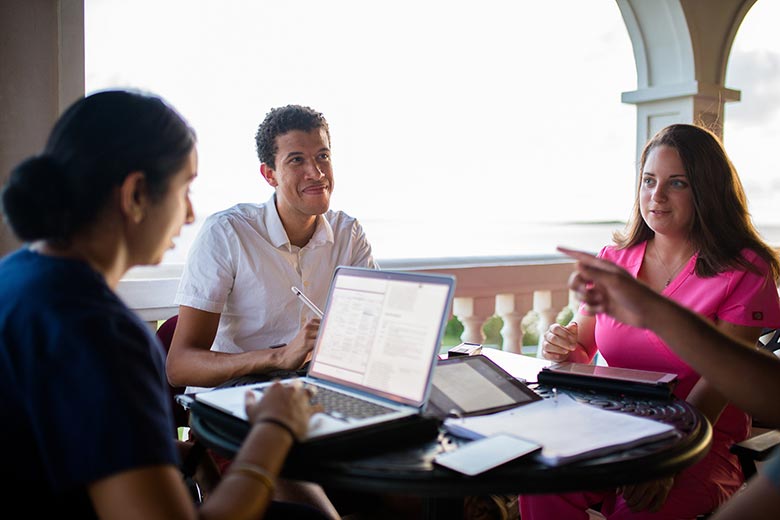Whether you’ve just gained acceptance to your dream programme at your first choice university, or are looking for some studying inspiration to prepare for upcoming acceptance exams, St. George’s University, School of Medicine in Grenada, West Indies, has created a list of insightful tips that can guide you through the process of studying at school or university.
- REVIEW MATERIAL REGULARLY
Given the large amount of content that students need to read and learn, the need to study regularly is one piece of advice just about every university pupil recommends.
- WRITE IT DOWN
While reading all of your assigned text is essential, you probably shouldn’t expect to remember all of it. It is always helpful to jot down anything that stands out and create flashcards while studying.
- TEST YOURSELF
You can quiz yourself from your own notes or as part of a group, but you should also contemplate question banks. Question banks help you get used to specific exam formats at university. Consider that there are multiple ways to test yourself with the same list of questions.
For example, in medical school, regularly testing yourself is essential to prepare for the United States Medical Licensing Examination (USMLE) Step 1, sometimes referred to as “the boards.” Many instructors at St. George’s University School of Medicine recommend taking the practice exams from the National Board of Medical Examiners (NBME) as they’re built to the same specifications as the USMLE tests. Following that same study approach, SGU has a 95% USMLE Step 1 pass rate for first-time test-takers over the last three years*.
Question banks help you get used to specific exam formats at university
- CREATE AN EFFECTIVE LEARNING ENVIRONMENT
Identifying a good learning environment is a key component of figuring out how to study -perhaps just as important as the study methods themselves.
Students usually do a mix of reviewing material at home and in the library. While both work, some students find themselves able to efficiently concentrate and study at certain locations more than others.
- IMPROVE MEMORIZATION WITH MNEMONICS
Elementary students rely on the acronym mnemonic ‘Roy G. Biv’ to remember the order of colours in a rainbow, and that same strategy can work just as well when studying a variety of materials. In fact, some students find a mnemonic approach ideal in helping them retain critical knowledge.
- USE VISUALS
If you’re a visual learner, take advantage of opportunities to use imagery by creating sketches that make it easier to digest complex material.
- INCORPORATE AUDITORY METHODS
Some individuals find they’re able to recall information better if they hear it. Therefore, recording lectures and doing your own online research to learn about specific topics in video or audio formats can help remember content more effectively.
Study groups can be particularly helpful for reviewing and answering practice quiz questions
- CONSIDER FORMING A STUDY GROUP
While reviewing material with others doesn’t work for everyone, study groups are a great option for those who do learn well when collaborating with fellow students. Study groups can be particularly helpful for reviewing and answering practice quiz questions. You may even be able to utilise your school to form a group. Some institutions, like St. George’s University (SGU), build collaborative review sessions right into the program along with other support services.
- ASK FOR HELP
Sometimes, there’s just so much material to get through. It’s essential to be proactive about seeking help when you need it. Be mindful of when you should seek assistance from instructors as well as classmates.
- TAKE CARE OF YOURSELF
While good study habits are important, make sure to incorporate regularly timed breaks to allow yourself some time to recharge. Take time out of your day to relax your mind and process the information you’ve previously studied. Whilst not every university offers sunrise yoga or study breaks on the beach like SGU, it’s important to schedule something you look forward to doing.
CREATE YOUR STRATEGY FOR SUCCESSFUL STUDYING
Lastly, these 10 tried-and-tested tips will help you develop your own strategy to successfully navigate your way through school or university and gear up for any exams.
*Average of 2018, 2019, and 2020 scores
















